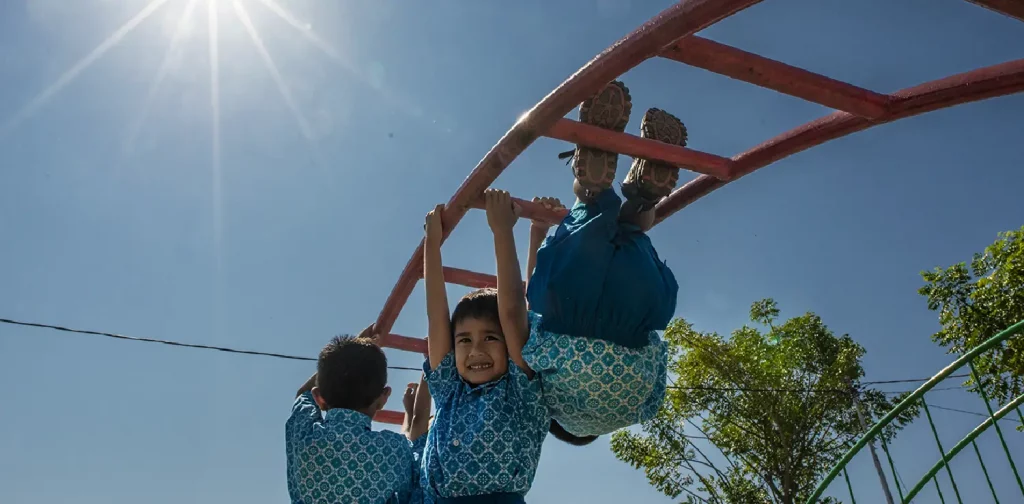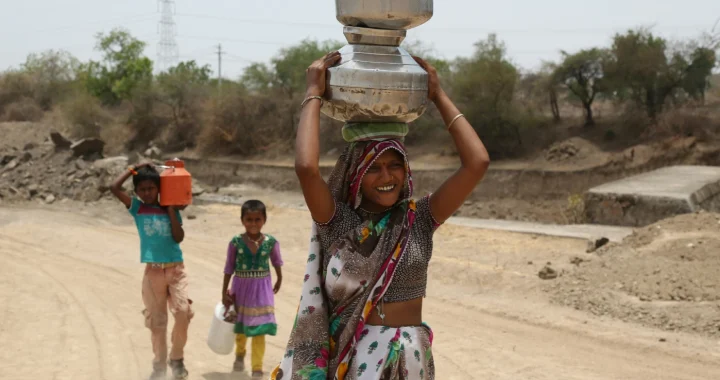Understanding Key Aspects of Children’s Wellbeing

Photo: UNICEF.
We often hear the saying that children are our future. However, this can only be true when children receive proper care, nourishment, protection, and education to ensure a thriving future. Unfortunately, children are still among the most marginalized and vulnerable members of society. Then, what are some of the key aspects to ensure children’s wellbeing?
Health
Health is a fundamental aspect of children’s wellbeing. However, insufficient healthcare and poor nutrition remain the biggest obstacles to children’s health.
WHO estimated that around 5.2 million children under five years died in 2019. Most of the causes were preventable and treatable, such as malnutrition. For instance, approximately 45% of deaths among children under five years of age were linked to undernutrition. Additionally, 14.3 million children still missed out on vaccination in 2022.
Addressing the gap in children’s health will require multiple approaches from multiple actors. Some options are widening healthcare coverage, improving health literacy, and strengthening healthcare programs.
Life Free of Poverty
Poverty is one of the world’s most persistent problems. Children are no exception to this condition. Millions of them still experience multidimensional poverty, where they lack basic needs such as food and shelter. Growing up in poverty can impact children’s growth and future.
Urgent and bold actions are needed to alleviate child poverty. Implementing a nationwide policy addressing child poverty, like the one in New Zealand, is essential. However, it must be followed by strong commitment, concrete actions, and participation from multiple key actors.
Safe, Clean, and Peaceful Environment
We live in a time of polycrisis, where the risk of disasters keeps increasing. UNICEF estimates that nearly 1 million children live in extremely high disaster-risk areas, such as tropical storms and flooding. Additionally, children are often “left behind” in crisis management with the lack of childcare access.
Furthermore, the lack of a safe and clean environment can severely impact children’s wellbeing; so, addressing related issues is vital. This includes improving access to basic water, sanitation, and hygiene (WASH) programs and interventions, especially in disaster and conflict-prone areas. Countries should also ramp up the interventions and programs providing childcare during crises while simultaneously working to prevent more crises from happening.
Access to Education
Early childhood is one of the most critical periods in life. It’s where the intellectual, social, emotional, and physical developments begin. Education is crucial for these developments, yet millions of children worldwide are still without education.
Supporting children’s development means closing the gap in the education crisis. It includes supporting teachers, improving access to quality books, and implementing inclusive education in schools worldwide.
Protection for Children’s Wellbeing
Between 2015–2016, a study estimated that up to 1 billion children aged 2–17 years have experienced abuse, including physical, sexual, and emotional violence. Girls, children with disabilities, and those who come from underprivileged backgrounds have a greater risk of getting exposed to violence, which can negatively impact their wellbeing in the long run.
Target 16.2 of the 2030 Agenda aims to “end abuse, exploitation, trafficking and all forms of violence against, and torture of, children.” In this case, governments and policymakers have crucial roles in implementing strong regulations to protect children, such as raising the age of consent and eradicating child labor. Furthermore, keeping children safe online must not be overlooked in this internet age.
All in all, ensuring children’s wellbeing involves addressing the issues and gaps across multiple life aspects. Strengthening collaboration and commitment are also essential to achieve a thriving future for children worldwide.
Editor: Nazalea Kusuma


 Embracing the Business Value of Sustainability
Embracing the Business Value of Sustainability  American Farmers Call for Government Support Amidst PFAS Contamination
American Farmers Call for Government Support Amidst PFAS Contamination  Asia Pacific’s SDG Progress Faces Major Setbacks
Asia Pacific’s SDG Progress Faces Major Setbacks  Exploring the Bidirectional Relationship Between Olympic Games and the Environment
Exploring the Bidirectional Relationship Between Olympic Games and the Environment  The Hidden Threat of Tire Pollution to Salmon Populations
The Hidden Threat of Tire Pollution to Salmon Populations  Understanding the Climate-Care Nexus
Understanding the Climate-Care Nexus